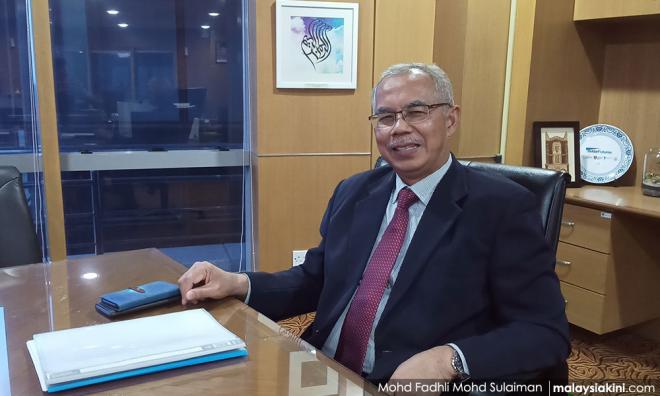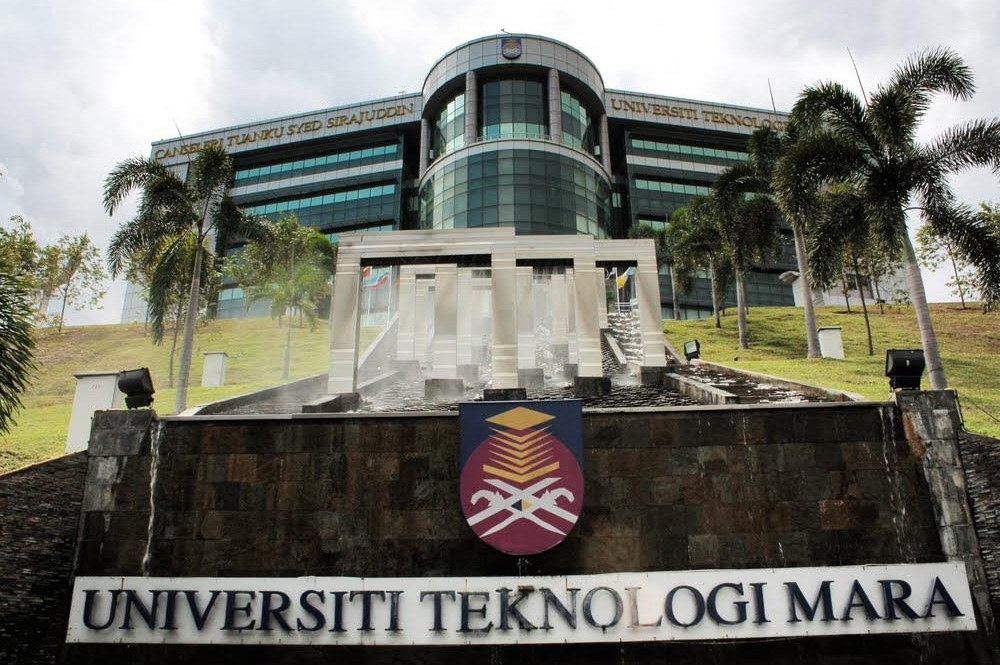
It is impossible to separate Universiti Teknologi Mara (UiTM) from politics due to its original goal of representing Malay and bumiputera rights, its Vice-Chancellor Mohd Azraai Kassim said.
However, the fundamentals of education should be a priority and not compromised by any programme that is political in nature and strays from the founding principles of UiTM, Mohd Azraai (photo, above) told Malaysiakini in an interview.
"Institutions like UiTM have had a hard time separating from politics because it was built on the basis of a specific mission to help the Malays and bumiputeras, so that they do not miss out and get involved in developing the economic landscape of the country.
"Education should be viewed and valued as a noble institution that helps educate, guide and shape knowledgeable, skilled and mature people in life - ready to serve their race, religion and country," Mohd Azraai said.
UiTM’s establishment as a university was formalised under the Mara University of Technology Act 1976 (Act 173) and Mohd Azraai stressed that the university occupies a unique position as an institution that defends the agenda of the Malays and bumiputeras.
“UiTM is the only university whose chancellor's post is held by the Yang di-Pertuan Agong. This means UiTM's status will always be maintained and guaranteed," he said.
Mohd Azraai, who was born in Perak on July 15, 1958, obtained his PhD in Environmental Engineering from the University of Newcastle Upon Tyne, an MSc in Public Health Engineering and a BSc in Civil Engineering, both from the University of Manchester Institute of Science and Technology.
He began his career in 1983 as a lecturer in the Faculty of Civil Engineering at Universiti Teknologi Malaysia, and held several senior positions in the university, including deputy vice-chancellor (Academic and Internationalisation, from 2009 to 2012) and deputy vice-chancellor (Research and Innovation, from 2012-2015).
Asked to comment on the controversial Malay Dignity Congress held last October, which saw the participation of academicians from Universiti Malaya, Universiti Pendidikan Sultan Idris, Universiti Putra Malaysia and UiTM, Mohd Azraai declined to answer directly, saying instead that with any matters relating to the struggle of the Malays, it might be reasonable to accept.

"It would be strange if UiTM was silent and did not lend its voice to issues concerning the Malays and bumiputeras," he said.
Mohd Azraai said he is open-minded about giving an opportunity to any individual or academician to be involved in the political process - but it needs to be viewed objectively and fairly.
“Some academicians are involved in political activities because of their knowledge and areas of expertise. They have the right to be involved because of their knowledge and qualifications but at the same time, they are also teaching staff at an educational institution.
"Prohibiting or denying their involvement will only make it appear as if educational institutions are limiting their academic freedom," he said.
Their involvement, he added, should come with the responsibility for whatever opinions they express.
Mohd Azraai also announced that UiTM will launch the UiTM Blueprint 2020-2025 plan, which is intended to shape the direction of the university over the next five years and in line with its goal of achieving excellence in national and global education.
“It is the goal of UiTM to achieve excellence in national and global education. In other words, we want to become a top-performing university that is well-known internationally,” he said.
Touching on the quality of UiTM graduates, Mohd Azraai did not deny that there are still graduates who have not reached the standards and qualities expected, but the university's efforts have not stopped.
“This has a lot to do with the personality and values of the graduate. That is why UiTM is now placing an emphasis on introducing positive and noble values, in addition to the existing academic programmes.
"For example, the practice of integrity, transparency, trust, love and respect are values that we constantly cultivate through our co-curriculum and community activities through student affairs and student clubs," he said. - Mkini



No comments:
Post a Comment
Note: Only a member of this blog may post a comment.